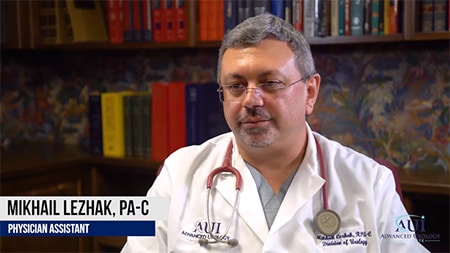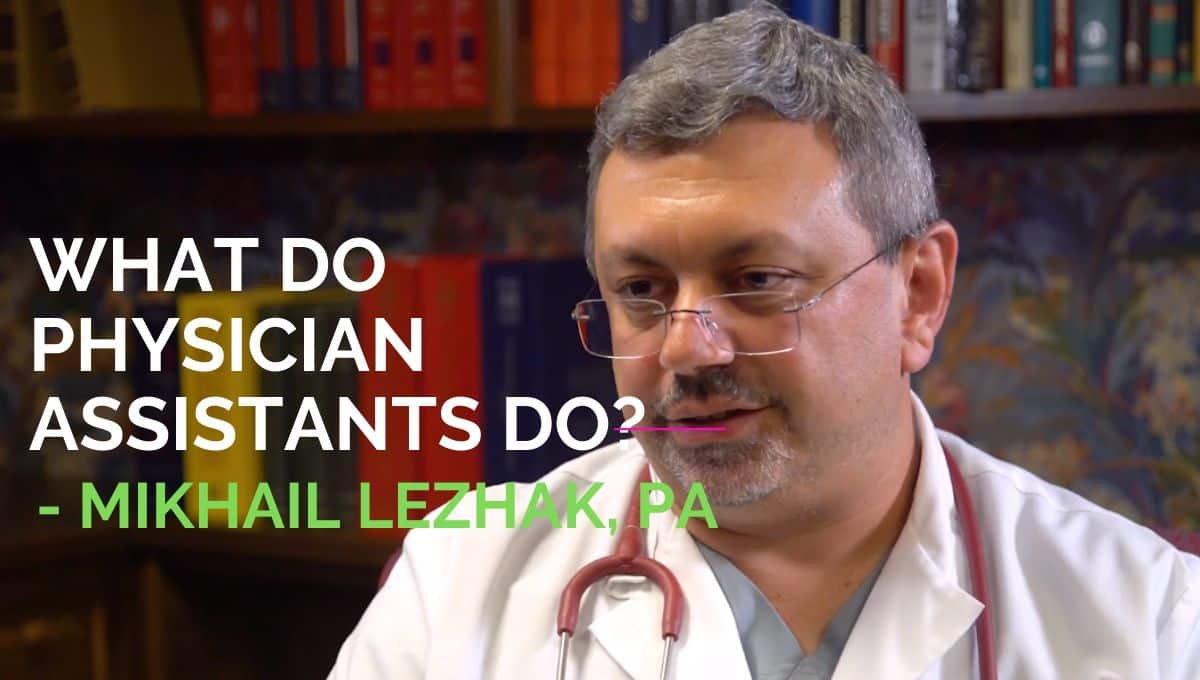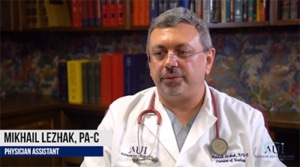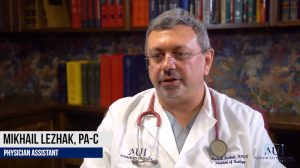Key Takeaways:
- Advanced Urology Institute combines geo-strategic accessibility, in-depth expertise, cutting-edge technology and a personal, nurturing approach.
- The Institute has the best technology available to offer evidence-based, personalized care.
- The Advanced Urology Institute is committed to excellence, striving for better and offering the best available treatment for urological diseases.
 As you navigate through the complexities of health, the importance of personal, empathetic, and state-of-the-art care cannot be understated. Florida’s Advanced Urology Institute (AUI) stands at the forefront of patient-focused urological treatments, spearheaded by talented professionals like Mikhail Lezhak, PA-C.
As you navigate through the complexities of health, the importance of personal, empathetic, and state-of-the-art care cannot be understated. Florida’s Advanced Urology Institute (AUI) stands at the forefront of patient-focused urological treatments, spearheaded by talented professionals like Mikhail Lezhak, PA-C.
“My name is Mikhail Lezhak. I’m a physician assistant with Advanced Urology Institute in Daytona,” he begins, setting the tone for an intimate dialogue on an often-overlooked field of medicine. At the heart of this discussion is you. You are not just another patient on a long list, but an individual deserving of top-tier medical care. This simple yet transformative principle is at the core of the Institute’s ethos.
Why Choose Advanced Urology Institute?
The answer lies in the convergence of geographic accessibility, in-depth expertise, cutting-edge technology and a personal, nurturing approach. As Mikhail Lezhak notes, “We have locations in many places in Central Florida and not only.” This geo-strategically dispersed presence ensures that no matter where you are in Daytona, FL or the surrounding areas, quality urological care is never far away.
The Institute’s physicians, urologists and Physician Assistants, like Lezhak, bring to the table an unrivaled collective prowess. “We’re very knowledgeable,” he asserts, “and they [the physicians] can help you with any urological problems and treat any kind of urological disease if you have any. And as a PA, I can help them doing that.”
Unparalleled Technological Advancements
AUI impressively aligns human compassion with technological evolution. “We are equipped with the top-of-the-line technology and machines that help to evaluate patients thoroughly,” Lezhak explains, delineating how the Institute is always a step ahead in the evolving medical landscape.
Having the best technology at their disposal allows these capable professionals to offer the best available treatment to the patients. Evidence-based, personalized care is not an abstract concept here, but a daily reality, seamless in execution and delivered with earnest compassion.
A Holistic Approach to Urological Care
AUI’s approach is holistic and patient-centric. The journey from diagnosis to treatment and beyond is mapped out with the utmost sensitivity, taking into account each individual’s unique circumstances.
As Lezhak underscores, his role as a PA enables him to contribute meaningfully to this journey. In this intricate dance of medical intervention, the patient is always at the center, enveloped by a team of experts dedicated to their wellbeing.
A Commitment to Excellence
The largest urology practice in Florida, AUI, has carved out an irreplaceable niche in the landscape of urological care. It is not simply about the cutting-edge technology, the wide-ranging presence across Daytona, FL, or the team of accomplished urologists and Physician Assistants. It is about the commitment to excellence, the relentless striving for better, and the knowledge, as Mikhail Lezhak puts it, “that we can offer the best available treatment currently for urological diseases.”
Choosing the Advanced Urology Institute for your urological care is choosing unparalleled expertise, cutting-edge technology, geographic accessibility, and above all, a compassionate and personalized approach. Dedicate yourself to the best, because your health deserves nothing less.
References:
- AUI. (2023, August 17). Brian Hale, MD: Urological Care with AUI. Advanced Urology Institute. https://www.advancedurologyinstitute.com/brian-hale-md-elevating-urological-care-with-advanced-urology-institute/
- AUI. (2023, September). Samuel Lawindy, MD: Why Choose AUI. Advanced Urology Institute. https://www.advancedurologyinstitute.com/samuel-lawindy-md-why-choose-advanced-urology-institute/
- Watson, S. (2016, May 25). Faces of Healthcare: What Is a Urologist? Healthline; Healthline Media. https://www.healthline.com/health/what-is-a-urologist
- And, D. (2023, September 21). Urologic Diseases – NIDDK. National Institute of Diabetes and Digestive and Kidney Diseases. https://www.niddk.nih.gov/health-information/urologic-diseases
- Urology. (2015, April 7). Urology. Health Careers. https://www.healthcareers.nhs.uk/explore-roles/doctors/roles-doctors/surgery/urology







 Physician assistants
Physician assistants
 There are many potential steps to be taken in the ED treatment process. The first step, especially when the patient is a younger man, is usually medical management. Doctors may prescribe common medications like Viagra or Cialis. Both medications are taken only when needed. They do not help cause an erection until the patient has already become sexually stimulated. They are safe, commonly prescribed medications; however, they can cause serious side effects in combination with other medicines, especially nitrates.
There are many potential steps to be taken in the ED treatment process. The first step, especially when the patient is a younger man, is usually medical management. Doctors may prescribe common medications like Viagra or Cialis. Both medications are taken only when needed. They do not help cause an erection until the patient has already become sexually stimulated. They are safe, commonly prescribed medications; however, they can cause serious side effects in combination with other medicines, especially nitrates.